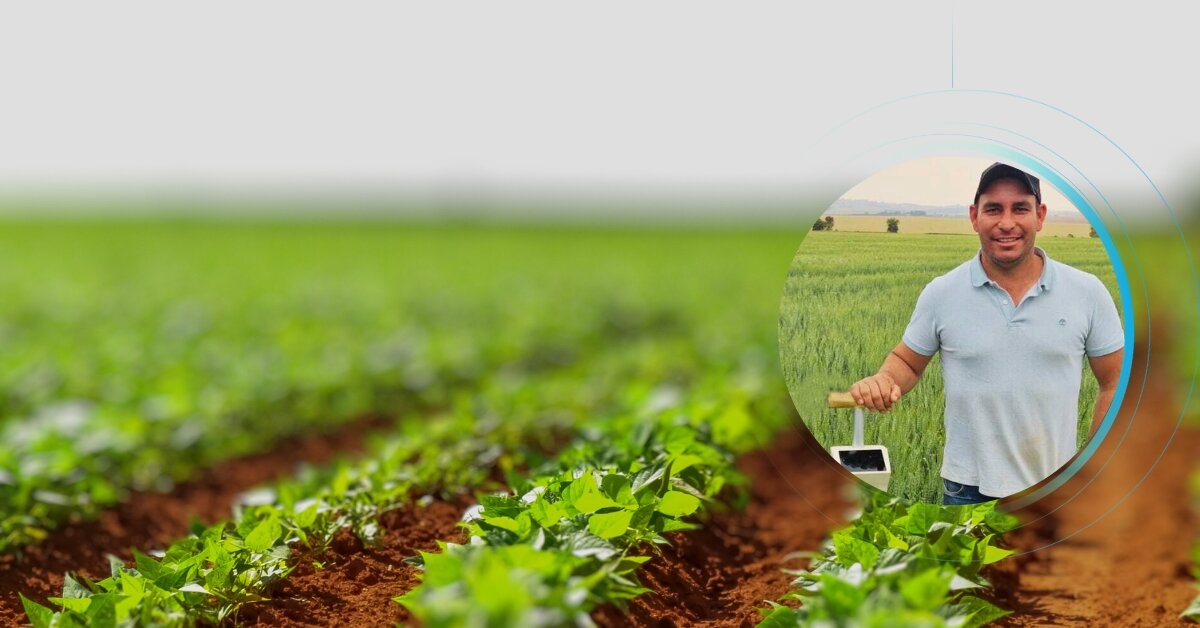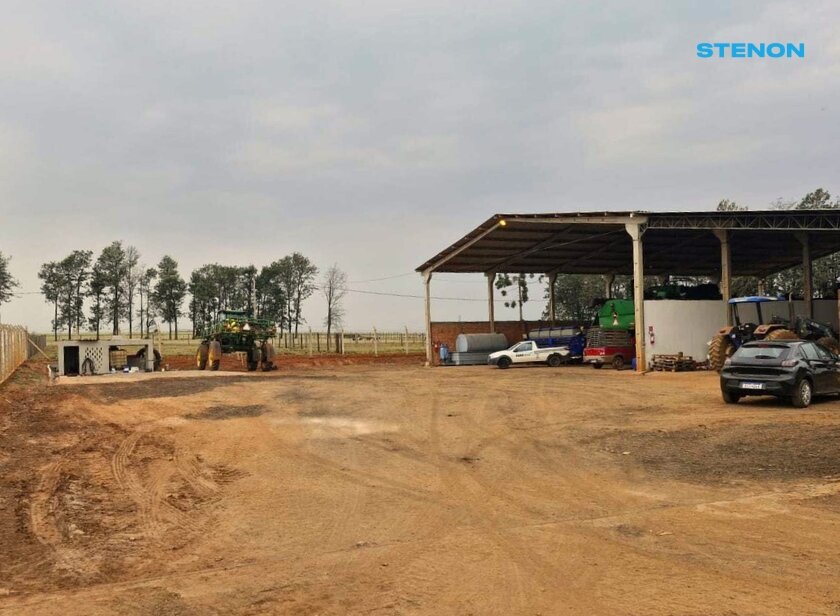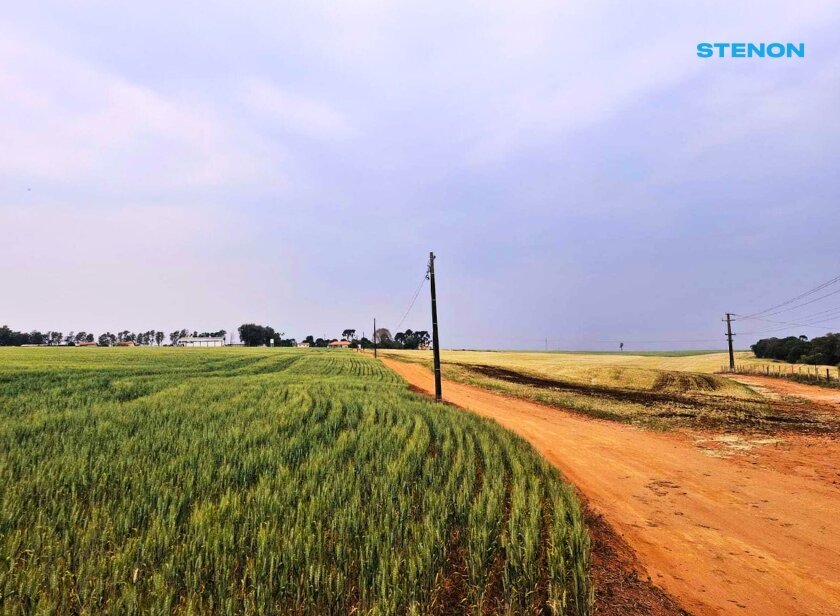
Customer Success Story: Farm Bacelar in Paraná, Brazil

Introduction
Mr. Marcelo Bispo, a farmer from Arapoti, Paraná, Brazil, has dedicated his entire life to agriculture, starting work on the farm at the age of 14. Over the past 12 years, on the 635-hectare farm, Bacelar, Mr. Marcelo Bispo has grown wheat, soybeans, beans, corn, and sorghum in a crop rotation system.

Challenge
In the past, Mr. Marcelo Bispo conducted soil analysis every two years. While he routinely tested for soil organic matter, nitrogen analysis was never performed. With the constantly increasing prices of fertilizers, one of Mr. Marcelo Bispo’s primary challenges was optimizing the application of Ureia fertilizer, which he commonly used on his fields.
Without the ability to obtain precise data on plant-available nitrogen at any given time to plan fertilizer application, Mr. Marcelo Bispo previously relied on the extraction method. This method estimates the amount of nitrogen the crop extracts from the soil, based on both the plant structure and the grains harvested. The exact amount is manually calculated using insights from studies published in the Paraná Fertilization Manual. However, the drawback of this method is that it focuses on the nitrogen requirements of the plant to achieve a certain yield, but it does not account for the existing nitrogen in the soil. This can result in different fertility levels within a field or plot, requiring varied fertilization plans for optimal efficiency.

Solution
Since 2023, Mr. Marcelo Bispo has been a customer of Lavoro Agro, one of the leading agricultural input retailers in Brazil. In addition to offering a wide range of agricultural products, Lavoro Agro has been continuously expanding its agronomic services to help customers adopt cutting-edge technologies that enhance productivity, cost efficiency, and sustainability.
In 2023, Lavoro Agro and Stenon formed an exclusive partnership in Paraná state, Brazil, to provide local agricultural businesses with Stenon’s advanced soil analysis and input recommendation technology. At the end of January 2024, Mr. Marcelo Bispo was approached by a Lavoro Agro expert who introduced Stenon’s innovative soil analysis solution. This technology had already helped farmers in Europe and Asia reduce costs on nitrogen fertilizers while achieving their planned yields. Mr. Marcelo Bispo was intrigued by this technology, as it promised to solve the challenge of obtaining real-time data on plant-available nitrogen. In addition to this critical parameter, Stenon’s soil measurement device, FarmLab, also provided data on soil organic matter, moisture, and other vital factors. Immediately after the measurements were completed, the Lavoro Agro expert was able to show nutrient maps and share precise fertilizer application recommendations based on the results with just a few clicks.
After the visit, the Lavoro Agro specialist showed me the map; it was very easy to understand the results.
Results
Although Mr. Marcelo Bispo was well-acquainted with his fields, the results of Stenon’s soil analysis provided new and crucial information—data on plant-available nitrogen. Combined with the powerful nitrogen fertilizer application recommendations, Stenon’s solution revealed that, to achieve his desired yield of 33 bags of beans, Mr. Marcelo Bispo could apply just 110 kg of Ureia per hectare, instead of his previous practice of 130 kg/ha. Considering the area of 90 hectares, by following this recommendation, Mr. Marcelo Bispo saved approximately $740 USD (R$4.000) from this first trial experience.
Sustainability and cost management are vital for Brazilian farmers, and Mr. Marcelo Bispo is no exception. Impressed by the opportunity to save $740 USD (R$4.000), Mr. Marcelo Bispo eagerly anticipated the most important part of a farmer’s life—the harvest. He was curious to see whether the final yield would confirm the advantages of Stenon’s technology and whether he could achieve the planned 33 bags per hectare. The actual results exceeded expectations: despite applying 15% less nitrogen fertilizer based on Stenon’s recommendation, the overall yield was higher than the previous period, reaching 36 bags (an increase of 10%) per hectare, which brought an additional $9,800 USD ( R$53.460,00), resulting in a total profit margin of $120 USD/ha (R$638,00/ha). The total potential profit for the whole farm of 635 ha would be approximately $74,300 USD (R$405.130).
“ I am very satisfied with the results and would recommend [Stenon’s technology] to other farmers, especially because of the nitrogen issue. You’re going to apply only what you really need.” concluded Mr. Bispo.
“We are very glad that with our soil analysis and fertilization recommendation solution, Mr. Marcelo Bispo was able to cut down his costs on nitrogen fertilizer while achieving an even better yield. This is a perfect example of how technology can help farmers improve their operations and drive sustainability. This is especially important during tough times in the agricultural market. It’s a key factor in staying competitive, and when the market situation improves, agriculture businesses can benefit even further from our technology. The savings achieved can be reinvested in enhancing overall operations, such as purchasing premium fertilizers and more biological inputs,” says Marcel Tarraf, Market development manager Stenon.